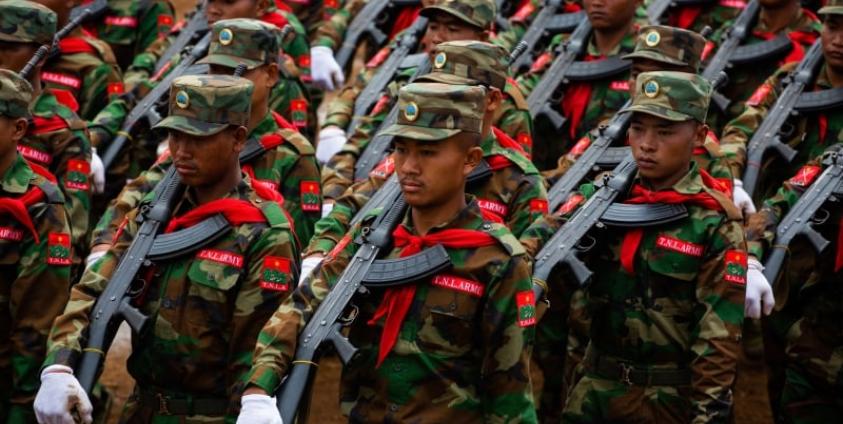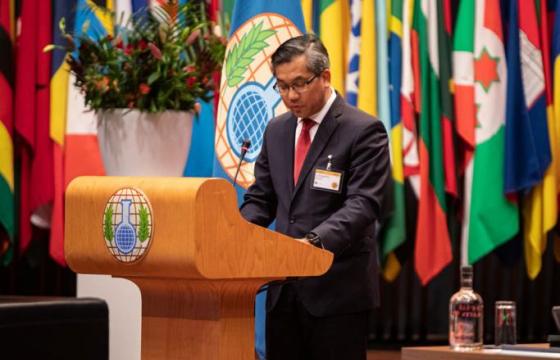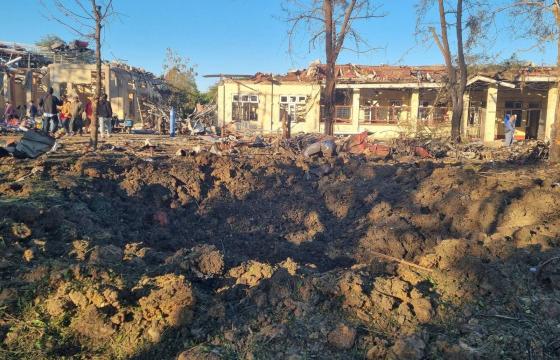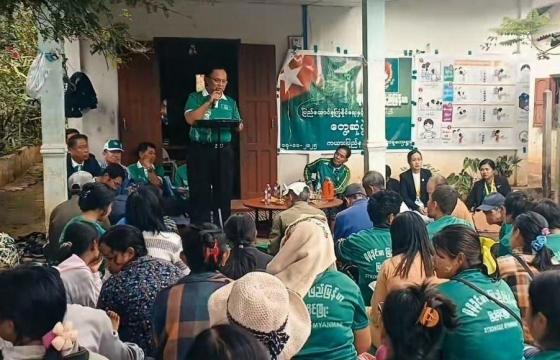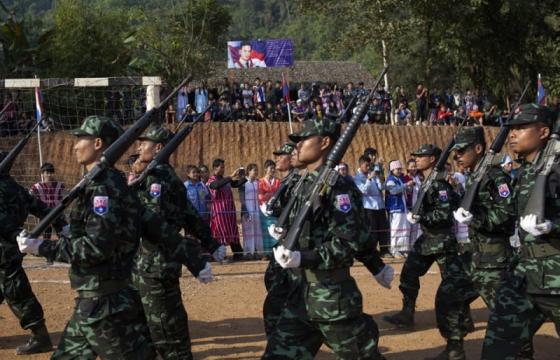As the third anniversary of the 2021 Myanmar military coup approaches, the situation gets tougher for the military and for the civilians caught up in the war, reports Vimutti this week.
The number of clashes in northern Shan State has continued to decline this week due to the ceasefire agreed between the Myanmar Military and the Brotherhood Alliance. However, the Brotherhood Alliance continues to accuse the Myanmar Military of violating the ceasefire, including launching an attack on PSLF/TNLA forces in Mandalay Region. Meanwhile, the KIO/A has been on the offensive in both northern Shan State (where it has taken control of Mabein Town and most of Mongmit Town) and Kachin State, where it captured bases in both Hpakant and Mansi Townships. In southern Shan State, following a clash between the PNLO/A and PNO/A, the PNLO/A joined resistance forces in attacking Myanmar Military and PNO/A forces in Hopong and Hsihseng Townships in the Pa-O SAZ.
Meanwhile, the Karen BGF announced that it would no longer be accepting salaries or supplies from the Myanmar Military and has withdrawn its forces from shared outposts. The BGF has even reportedly begun preparing defenses in Shwe Kokko and its leader threatened that they would fight back if the Myanmar Military attacked. While the BGF said they had decided to distance themselves from the Myanmar Military because they did not want to fight fellow Karen, some reports have suggested that this may have more to do with recent discussions between the SAC and Thailand on cracking down on cybercrime, scam, and gambling operations in the border areas. The BGF profits from and has ties to many of these criminal operations and so may be responding to the development either by preparing to resist any moves to close down these operations either directly or by forcing the SAC to negotiate not to move against the operations in exchange for the BGF’s continued support.
Meanwhile, the KNU/KNLA reported that over 750,000 people have been displaced in the Kawthoolei area since the 2021 coup d’état and that almost 200 civilians were killed by the SAC in the same area last year. The ERO also reported that the SAC had carried out around 800 airstrikes and fired artillery around 2,000 times in 2023. These airstrikes and artillery fire have continued in 2024 and killed at least 17 civilians in the past week. This includes two incidents in which IDP camps appear to have been targeted. This week also saw the first airstrikes on Hsihseng Township in southern Shan State. In northern Shan State, it is estimated that 40 civilians were killed in the fighting in and around Mongmit Town. Meanwhile, in Tabayin Township, Sagaing Region, 14 people were detained by the Myanmar Military on January 18. Four of them were found dead the following day, while the whereabouts of the others remains unknown.
POLITICAL ISSUES
One of the Brotherhood Alliance’s comments on the SAC’s ceasefire violations described these as an insult to China, once again highlighting the importance of China’s role in the negotiations. Some analysts have suggested that this in fact makes the ceasefire less likely to hold, as the EROs agreed only due to pressure from China. However another analyst suggested that they may be hoping to negotiate the surrender of Lashio Town. Meanwhile, commentators have highlighted China’s economic interest, although noting that the ongoing fighting in Rakhine State especially in Kyaukpyu Township may impede Chinese projects, while analysts have disagreed as to whether recent developments suggest an increase or decrease in China’s influence in Myanmar. Meanwhile comments by the NUG Acting President suggest that whichever way the trend is going, he sees China as having exceeded international norms on the relations of states in its engagement in Myanmar’s internal affairs.
Criticisms of the SAC Chairman among supporters of the SAC and Myanmar Military have continued to be voiced, both online and offline. Some sources have suggested that the quick release of a monk who was detained after calling for the SAC Chairman to step down from his position as Commander-in-Chief of the Myanmar Military shows that the SAC is wary of further angering its supporters. Another source suggested that there are tensions between the SAC Chairman and the Deputy Commander-in-Chief. However, there are still some pro-SAC Telegram channels urging the Military’s supporters to have patience and saying that the Myanmar Military could easily recapture the towns taken by the resistance forces. Among this discourse, there has been relatively little attention given to the question of what will happen on February 1, when the current state of emergency ends. Some commentators have however made predictions, mostly suggesting a further extension of the state of emergency, rather than any transition, although there has been some speculation about the forming of a transitional government.
Meanwhile, the PSLF/TNLA and MNTJP/MNDAA are continuing their efforts to establish their own administrations in the territories now under their control. The PSLF/TNLA noted that it was filling some positions with graduates from the policing and administration trainings that it has been running and that it plans to run further trainings to fill gaps in other departments. However, a PSLF/TNLA leader also suggested that the group might recruit non-CDM civil servants to fill gaps, particularly in the education sector. This has been criticized by CDM participants, one of whom called it equivalent to ignoring the sacrifice of fallen soldiers and suggested that it also implied the PSLF/TNLA believed CDM staff were unqualified. The MNTJP/MNDAA has also attracted some complaints due to its policy of not allowing Bamar to return to Laukkaing, despite the fact that some are long-term residents with lives and property to return to there. The MNTJP/MNDAA also ordered that all guns issued by the Kokang BGF should be handed in by February 5 and has placed restrictions on the sale of guns. Meanwhile, the sale of land or motorcars and the construction of houses are permitted, but require authorization. The MNTJP/MNDAA has also been taking steps to extend its administration in Hseni Township through engagement with Village Administrators, but one such Administrator died during an MNTJP/MNDAA inspection. Separately, the Chinland Council announced that it has begun forming the Chinland Government, which will have 15 ministries.
Discussion among scholars and analysts over the future of Myanmar continues. One this week suggested that those trying to “re-assemble” Myanmar should not start with discussions of territorial divisions (which are likely to prove contentious), but instead begin by trying to find agreement on more abstract principles and questions. He proposed that these could include “what kind of local government might be acceptable to all groups, and how would those governments be financed? Then, how would a guide for reassembly—a new constitution—be written?” The same author stresses that dialogue, discussion, and compromise among conflicting parties are essential to finding a way forward. Three other articles focus primarily on the role of the international community. One by the Thai Deputy Prime Minister and Foreign Minister calls for more active and collective engagement from ASEAN, Myanmar’s neighbors, and other partners, and stresses the need for all actors to encourage “genuine dialogue and reconciliation between the military and all the opposition parties and armed ethnic groups.” Responding to this, Dutch and Thai former ambassadors noted that this approach would not work without more substantive engagement with the resistance than has yet been seen, and listening to “those who have been laying the groundwork for a new and inclusive federal democracy.” The third article takes a rather different approach, setting out seven things that the author believes are needed for the resistance to prevail, several of which (including the recognition of the NUG and the provision of more sophisticated weapons for the resistance forces) would require action by the international community, something that the author sees as unlikely.
Vimutti is a media organization that brings local knowledge and insight on Myanmar to broader attention.

